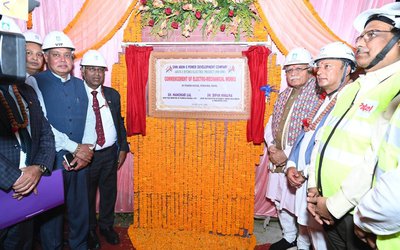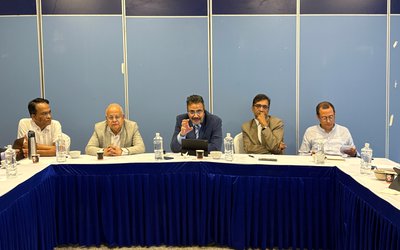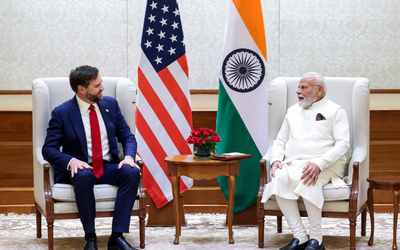
As the number of coronavirus confirmed in Chinese mainland and other parts of the world is expanding, Nepal’s health system is facing a stress to cope with the situation.
The number of Novel coronavirus cases worldwide has overtaken that of the similar Sars epidemic, which spread to more than two dozen countries in 2003. But the mortality rate of the new virus is much lower, suggesting it is not as deadly.
There is panic all over and Nepal is no exception. Although many people die in Nepal from influenza and cold virus, coronavirus has created more panic due to media coverage.
Following the spread of deadly coronavirus, the World Health Organization has declared a global health emergency. At a time when there is a growing complaint that Nepal is ill prepared to spot and contain the disease, bringing back more than 200 Nepali students from China will intensify the health risk to returnees and general population.
However, Sukraraj Tropical and Infectious Disease Hospital (STIDH) said that a patient suspected with novel coronavirus infection tested negative. Of the six cases, one Chinese national tested positive.
Dr. Anup Bastola, Chief Consultant of Tropical Medicine at the STIDH Teku, said that many suspected patients have been visiting with flu symptoms. Recently a person who had come from South Korea was referred to the hospital after he suspected himself to be infected with the disease.
According to medical doctors, the biggest threat posed by this disease, which originated in Wuhan, is that people infected with the novel coronavirus (2019-nCoV) may not always develop symptoms of illness. This shows people with coronavirus may transmit the disease without falling sick. This unique characteristic has raised the chances of the disease spreading rapidly without anyone noticing it for some time.
“Since it is difficult to spot people who have not developed symptoms, we must quarantine everyone coming into Nepal from countries where coronavirus has been detected for at least two weeks,” Dr Bibek Kumar Lal, director of the Epidemiology and Disease Control Division told to The Himalayan Times.
As Nepal does not have adequate technology and tools to contain the virus, it can create epidemic if it enters Nepal. Nepal does not have adequate digital thermometer except in TIA. Similarly, Nepal does not have adequate guards for doctors, medical staffs and others who get involved in treating coronavirus. The hospitals are not prepared to treat the patients contracting coronavirus.
There is the need of special ambulances to transfer patients to health facilities. According to the doctors, they require double cab ambulances to ferry patients to hospitals, for patients not to come into close contact with drivers in those vehicles. Similarly, National Public Health Laboratory lacks reagents to conduct comprehensive test of the virus.
The countries, not well prepared, always are victims of global outbreak of any disease. Nepal has non-reusable personal protective equipment adequate for 150 tests, according to Dr Lal. “This is not adequate because those gears cannot be reused,” he said. Personal protective equipment should also be provided to ambulance drivers to prevent contagion. However, no ambulance driver has received one yet.
“Doctors, laboratory technicians and nurses should be insulated from every threat,” said Dr Baburam Marasini, former EDCD director.
Common signs of infection include respiratory symptoms, fever, cough, and breathing difficulties. In more severe cases, infection can cause pneumonia, SARS, kidney failure and even death, said Dr. Bastola.
The most effective preventive measures are everyday actions like increased hand washing and not touching your face, nose and mouth, he added.
Chinese Assurance
Chinese Ambassador to Nepal Hou Yanqi appreciated, in her tweet, the confidence to China given by the Government of Nepal and WHO Representative in Nepal to win the battle against #NovelCoronavirus: let's fight against it together!
Ambassador Hou also paid courtesy call upon Minister of Culture, Tourism and Civil Aviation Yogesh Bhattarai and Foreign Secretary Shanker Das Bairagi. She also visited WHO Office in Nepal. She also paid a courtesy call upon minister of Health and Population Bhanubhakta Dhakal.
During her meeting with Minister Bhattarai, ambassador Hou informed that the Chinese tourists to Nepal would decline due to the epidemic. She assured that after the epidemic is under control, we will continue to encourage more Chinese tourists to visit Nepal and contribute to the 2020 Visit Nepal Year.
During her meeting with foreign secretary Bairagi, she assured Nepal Government that Nepali citizens, including some students residing in Wuhan, would receive medical care amid the Coronavirus outbreak.
- NEPAL-THAILAND: Joint Business Council
- Apr 13, 2025
- BIMSTEC SUMMIT: Nepal’s Stand
- Apr 11, 2025
- IME GROUP: Expands Into Paper Industry
- Mar 24, 2025
- CPN UML: Instigated By India
- Mar 23, 2025
- ADB’S CHIEF ECONOMIST: Nepal Reduces Poverty
- Mar 11, 2025















